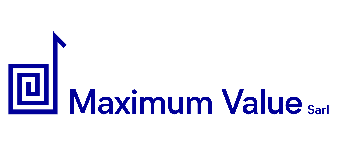Are you an entrepreneur and you want to create a company? Do you wish to become independent and set up your own business? What are the steps to follow? How to sufficiently cover your needs for insurance and pension? What legal structure is the most interesting?
At Maximum Value, we look at your situation as a whole in order to make the right decision.
Legal advice
We help you plan your independence thanks to our expertise in company law, labour law.
Due diligence
Offers to purchase a company or an asset usually depend on the results of due diligence analysis. This includes reviewing all financial records and anything else deemed material to the sale. Sellers can also perform a due diligence analysis on the buyer. Items that may be considered feature the buyer’s ability to purchase, as well as other items that would affect the purchased entity or the seller.
During an acquisition, the traditional process is as follows:
- due diligence
- negotiations
- commitment
- closing
Due diligence is a way of preventing unnecessary harm to either party involved in a transaction. Maximum Value helps you all along the way.
Creating the company name and its statutes
In addition to research in the central index of company names (zefix), other issues must also be taken into account particularly as regards the choice of company name. You may choose any name for your company, however it might not always be compatible with the purpose of the company. What is it you need to pay special attention to when defining these parameters? Maximum Value’s advice helps you take all these factors into account.
Types of companies
In Switzerland, there are nine major types of companies:
- Sole proprietorship
- Corporation
- Sàrl
- Simple partnership
- Partnership
- Limited partnership
- Association
- Cooperative society
- Foundation
Here are the main advantages and disadvantages of the most common three.
Sole proprietorship
More freedom but more financial responsibility.
Advantages:
- Great freedom in the management of the company
- Low minimum capital
- Taxation: no double taxation of profits
- Foundation: low fees
- Administrative costs: less than for a GmbH or an AG.
Disadvantages:
- Financial responsibility of the owner to the extent of commercial and private fortunes
- The owner’s name is known (unlike SA)
- Corporate name: the owner’s name must feature in it
- Obligation to keep accounts if in the commercial register
- Taxes: no separate taxation on income and wealth, business and personal
- Owner’s liability only
Limited liability company
Minimizes the amount of initial capital but higher fees.
Advantages:
- Small minimum required capital (CHF 20’000)
- Limited responsibility: to social capital
- Company: free to choose a name, but “Sàrl” is a mandatory addition
- Founder: only one founder is required
- Tax progressivity: the division of profits
- Sale of shares: the benefits derived therefrom are not taxable
Disadvantages:
- Double taxation on profits and capital, and the associate’s income and assets
- Foundation: startup costs higher
- Advertising: bodies, capital and shares are available for free in the commercial register
- Higher management fees: protocols, meeting of shareholders, tax forms, etc.
Public limited company
Less financial responsibility, but requires more initial capital.
Advantages:
- Responsibility: the shareholders are only liable for their share of capital stock.
- Advertising: division of property is not official. Easy to sale the company.
- Social benefits: working shareholders are considered as employees and must be insured.
- The name can be chosen freely.
- Taxes: progressive taxes may be interrupted by the division of profits.
- More influence for founder made possible through shares with increased voting powers.
Disadvantages:
- Capital: high minimum capital (CHF 100’000).
- Foundation: long procedures, high cost.
- Double taxation of the company’s yield and capital, as well as shareholders’ income and capital.
- Strict accounting instructions: legal reservations, …
- High administrative cost: protocols, management reporting, accounting, general assembly, tax forms, auditors, etc..
Fiscal advice
Tax optimization is essential. How to best distribute the tax burden between your company and yourself? When creating the company, you should check if your company is subject to VAT. If so, you need to decide which tax formula to choose from the start. Maximum Value also helps you in your accounting duties, including tax return.
Insurance advice
Which insurances are obligatory? Which ones best cover you? What happens to your LPP when you become independent? Maximum Value explains the different options so you can make optimal choices.
Corporate advice
Thanks to its network of businesses, Maximum Value can refer you to companies offering services and products tailored to the needs of starting businesses: IT, marketing, maintenance and many more.
Drafting your business plan
In order to create and run a business, management should have a clear idea of the objectives and resources available. The business plan is the best instrument to devise the objectives and the main strategy: it provides guidance on the vision of management and allows investors to get a fair idea of what the company is about.
Tailored services
Maximum Value provides you with its expertise, tailored to your project of creating or modifying a company.
Our team specializes in areas such as law, economics and accounting. We follow up on your project, updating you all along the way.
We provide
- Legal advice
- Preparation and drafting of the paperwork
- Comprehensive analysis of your project
- Filing to the required entities
- Assistance and monitoring

